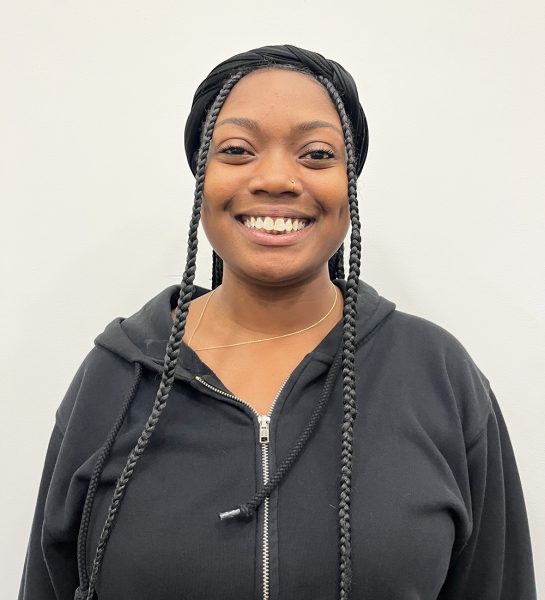Senior Stephanie Rojas-Garcia speaks on her heritage and identity

“Being Mexican is a huge part of my identity because it’s who I am,” says Stephanie Rojas-Garcia.
Stephanie has always been closely connected to her Mexican heritage. She adds that her favorite parts of Mexican culture are, in short, “The music, the food, the language.”
Mexican music has a very deep effect on Stephanie.
“When I turn on any type of Mexican song, it just uplifts me,” she says.
In terms of food she enjoys pozole, a soup/stew with meat and vegetables and finely ground corn.
Stephanie expresses her Mexican identity through the traditions she practices. For example, she practices Lent, which among other things entails not eating meat on Fridays. During birthdays, it’s tradition to smoosh the birthday person’s face into their cake.
Her parents, Angelica Garcia and Carlos Gonzalez, both immigrated from Mexico in 2000, to escape their poverty. They had to work long hours, and still didn’t have enough to eat. After briefly living in a few states, they settled in Portland where they had relatives.
They instilled in her the value of hard work and always trying your best. These values have become especially important in the time of online school.
Stephanie already admits that she procrastinates, and online school has made motivation even harder to strike for everyone. Despite the difficulties, her determination to get done what needs to be done has helped her along. This determination allows her to get done what needs to be done, and fix what needs to be fixed.
Joanna Rojas-Garcia, Stephanie’s older sister, is clearly impressed with her little sisters’ ability to keep her nose to the grindstone in these trying times, noting that, despite the struggles, Stephanie has kept working to understand the new material.
“It’s inspiring to see and witness her drive to succeed and do better,” Joanna said.
Stephanie’s identity influences not only who she is as a person, but also who she is to others.
“When you’re in a class, and you look over and you see somebody who looks particularly Mexican or Hispanic, and you bond over that,” Stephanie says. “Closer than you would with any other person.”
Stephanie’s Mexican identity influences not only who she is, but how she’s perceived by others.
“There’s just a certain attitude that you could be given,” Stephanie said. “And someone else is giving it differently, and you can totally see it. It’s totally noticeable.”
It’s not just their attitudes, but what they say that also gets to Stephanie. Stephanie describes the effect of microaggressions (the everyday, subtle, and often unintentional behaviors that convey racial bias) on her.
“To them it’s just a simple word,” she says, “But you remember it. You constantly [remember it]. It’s very difficult to get over that.”
Everyday interactions are one thing, yet being Mexican affects her whenever she needs to identify her race for the government. In the US, you must first often answer, “Are you Hispanic/Latino?” on any race-identification forms, and then you must select a race.
“When you click on a bubble,” Stephanie says. “Most of it is just… they don’t really have Hispanic on it.”
Joanna also explained how she experiences it, and also eloquently shows what Stephanie seems to be trying to get at.
“It’s as if my race is being dismissed,” Joanna said. “Other Census options include races with which I am unfamiliar or with which I have no affiliation.”
Every person is their own universe, as they say, and a major galaxy in Stephanie’s universe is her Mexican heritage and all that comes with it.

Zane Emerson is a senior, and loves writing stories about politics, books, or whatever he’s interested in at the moment. People describe him as funny, competitive, and a nerd. He loves being a journalist because he has the freedom to explore interesting ideas and share them with the world. When he’s not writing a story, he likes to play board games, watch football (Go Seahawks!), and spend time...








